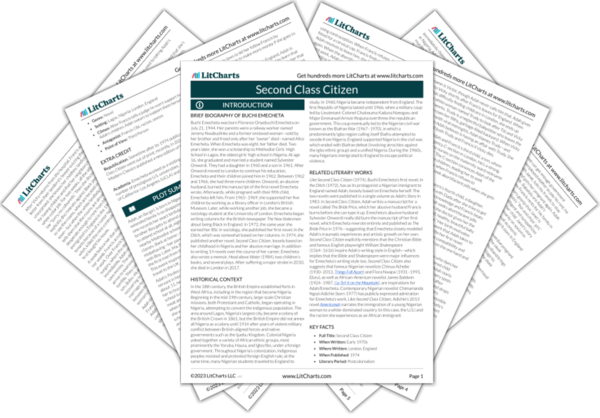Chinua Achebe (1930–2013) is a Nigerian writer most famous for his 1958 novel
Things Fall Apart, which represents the negative effects of white colonialism on Nigeria. Flora Nwapa (1931–1993) is a Nigerian writer whose 1966 debut novel
Efuru was the first by any African woman to receive international publication. James Baldwin (1924–1987) is a famous African American essayist and novelist who wrote extensively about racial justice. Adah learns that “black is beautiful” from reading Baldwin, not in any class, which shows that one’s informal education through reading can be as formative as formal education. Adah not believing that “black is beautiful” before reading Baldwin shows the negative impact that racism has had on her psyche.
